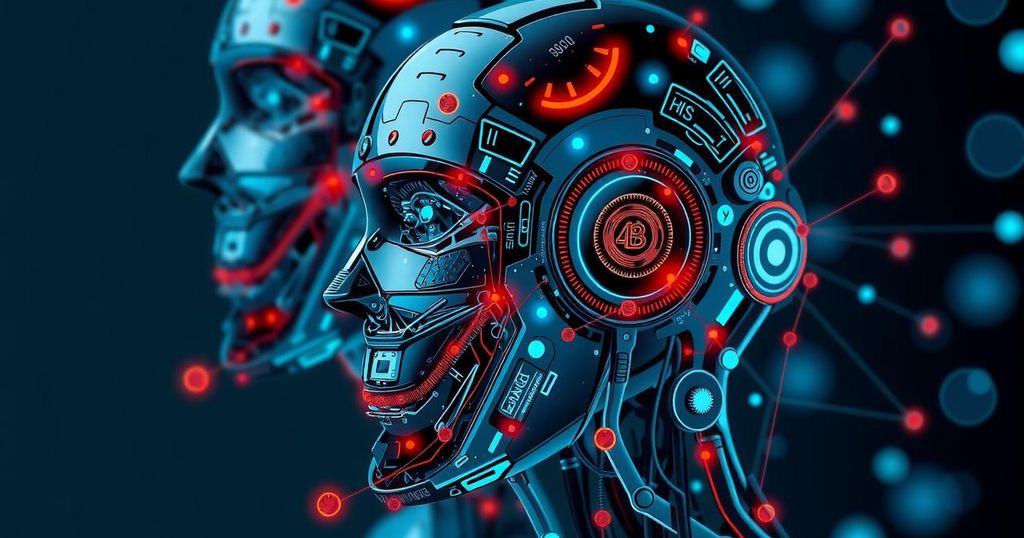The Next Five Years of AI: A Transformative Journey Ahead
The future of AI over the next five years is poised to reshape society significantly. Key changes include a faster pace of life influenced by AI-decision making, efficiency boosts in business operations, new ethical challenges regarding privacy, and a complex regulatory environment. Major impacts will be felt across various sectors such as education, healthcare, finance, and transportation, highlighting both the potential and risks associated with artificial intelligence.
Imagine a world where the mundane ticks of time are replaced with the rapid beat of engagement—a realm where artificial intelligence seamlessly weaves itself into the fabric of daily life and industry. Over the next five years, as we accelerate into this new era, expect profound shifts in our interactions with businesses, governments, and even each other. The advent of sophisticated AI will revolutionize decision-making processes across organizations, prompting life to quicken in unprecedented ways.
AI’s integration will usher in an age of efficiency, compelling corporations to prioritize generative AI or risk falling behind their competitors. This drive for optimization will reflect a fundamental desire for increased profitability, leading organizations to reinvent their operational strategies almost overnight. Yet, as the pace of progress quickens, the delicate balance of ethical considerations around privacy and data security will hang in the balance.
The looming presence of AI law will create a legal landscape fraught with complexity as regulators scramble to oversee its deployment. Governments worldwide will likely craft and enforce AI regulations, creating a tumultuous environment for businesses eager to harness AI’s potential.
Simultaneously, the public will yearn for harmony between human intelligence and artificial augmentation, wishing to cultivate collaboration rather than displacement. Industries ranging from education to healthcare will experience transformative changes, addressing tailored learning experiences and revolutionized diagnostic tools. In finance, AI will empower better decision-making and enhanced customer interactions, while the legal field could see a significant reduction in workforce size due to AI efficiency.
Transportation will not escape the AI wave; expect a surge in autonomous vehicles operating seamlessly on our roads. Yet, as we embrace these innovations, a quiet anxiety lurks beneath—a fear of loosening control over systems designed by our hands. This fear, while often portrayed as a near-apocalyptic scenario, reflects broader anxieties around missed opportunities for growth and innovation.
As we stand poised on the brink of this AI renaissance, let us navigate this exciting future with caution, ensuring that human insights and ethical considerations remain at the forefront of this technological evolution. The story of AI is yet to be fully written, with each chapter ripe for exploration and understanding, as we weave the long-anticipated narratives of both prosperity and potential peril.
The article delves into the anticipated influence of artificial intelligence in the next five years, predicting swift transformations in various sectors and societal behaviors. It begins with the historical context of AI’s development, starting from its conceptual roots in science fiction to groundbreaking milestones like IBM’s Deep Blue beating a chess champion. As AI technologies become integrated, expectations about efficiency, privacy, and regulatory challenges will shape industries ranging from healthcare to finance, underscoring the narrative of AI’s promise and concern.
In conclusion, the next five years of AI development promise to accelerate our society towards uncharted territories filled with opportunities and challenges. We anticipate a faster pace of life, broader efficiencies across industries, and mounting questions regarding privacy and ethical considerations. As the regulatory environment becomes increasingly complex, the need for responsible AI usage will be paramount, ensuring that our future harnesses innovation while simultaneously preserving human values. Thus, as we embrace AI’s capabilities, we must also remain vigilant and committed to navigating this dynamic landscape responsibly.
Original Source: www.techtarget.com




Post Comment